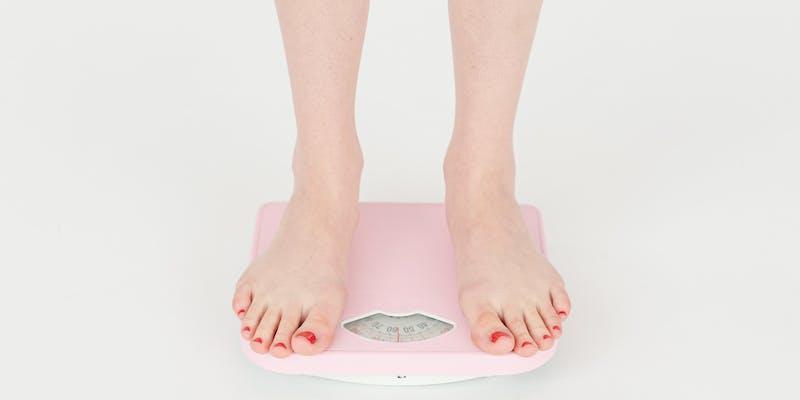Weight Loss Debate: Is Coffee an Effective Tool for Shedding Pounds?
Feb 22, 2024 By Nancy Miller
Coffee is a brewed beverage using its plant's roasted coffee calories pods. In addition to Nigeria and Sudan, Madagascar, Mauritius, and Comoros are among the regions from which this plant extends its origins. The most widely utilized bean is Coffea arabica; however, distinct varieties exist, contingent upon the geographical area from which one consumes java or the country from which one imports the beans.
In addition to vital nutrients such as potassium, manganese, and magnesium, coffee for weight loss contains B-family vitamins (riboflavin, pantothenic acid, and niacin). Primarily, they are composed of antioxidants and caffeine, which confer many health benefits when ingested in moderation and at appropriate times of the day. Many weight loss benefits may be associated with each cup of coffee you consume daily.
Coffee and Calorie Intake
Coffee consumption before meals may assist in decreasing portion sizes. According to research, consuming a caffeinated cup of coffee may affect the calories in coffee consumed three to four hours before a meal. Simply put, coffee's caffeine content may assist you in consuming fewer calories by rapidly decreasing your energy expenditure. While the precise mechanism underlying this reduction in caloric intake beyond whether it is attributed to reduced hunger or another factor remains uncertain, it is evident that coffee can contribute to overeating reduction.
Remarkably, this effect can be produced by consuming even a moderate amount of coffee daily. Consuming caffeine-containing coffee at approximately 200 milliliters per day may reduce caloric intake, both in the immediate aftermath and over the day. Adding coffee to your daily routine could be a straightforward and productive method of regulating caloric consumption, a critical factor in sustaining a healthy body weight.
Coffee For Weight Loss

Coffee possesses polyphenols, which are calories in coffee that regulate and potentially promote weight loss. Anti-inflammatory and health-promoting polyphenols, abundant in plant foods, are classified as beneficial nutrients. A study published in Chemico-Biological Interactions within the field of nutritional science provides evidence that polyphenols may aid in weight loss. As beneficial microorganisms increase in the gut, these antioxidants are recognized for their potential to promote weight loss.
Coffee emerges as a prominent beverage in terms of polyphenol content, surpassing even well-known options such as black or green tea. Coffee for weight loss thus serves as a substantial reservoir of these advantageous compounds. Therefore, individuals aiming to control or decrease their body weight may find its incorporation into a nutritious diet pleasurable and beneficial. By harnessing the inherent qualities of coffee, one may discover a pleasant supplement to their pursuit of weight loss.
Coffee Boosts Your Metabolism
Your metabolism burns fat and calories in coffee, making it crucial to weight loss. Coffee may boost metabolism or be the finest pre-workout fuel. This benefit requires regular caffeinated coffee usage. In numerous trials, caffeine has been demonstrated to increase BMI, decrease adiposity, and improve weight loss. It was found that caffeine increases adipose and caloric expenditure. Furthermore, caffeine intake determines impact strength. When caffeine consumption was quadrupled, weight loss, BMI, and adipose mass were all cut in half.
The findings are already promising, even though the primary objective of this research was to examine the effects of caffeine in general and not coffee calories in particular. Both caffeinated tea and a cup of coffee contain caffeine, which can produce comparable effects on the metabolism. Coffee affects metabolism, research reveals. Safely, a popular Vietnamese coffee and tea firm with recent expansions into the US and Australia unexpectedly discovered that coffee had a stronger potential to burn fat while studying its effects on insulin.
Coffee Inhibits Hunger Hormones

You likely possess knowledge of the contentious debate surrounding the potential appetite-suppressing effects of caffeine, specifically coffee calories. There are differing opinions regarding whether coffee indeed functions as a natural appetite suppressant or merely appears to inhibit desire. Undoubtedly, coffee for weight loss does have an impact on an individual's sensation of appetite.
A 2014 study claims that consuming one cup of coffee daily decreases ghrelin levels. Ghrelin, the hormone responsible for inducing guilt, increases appetite in direct proportion to its concentration in the body. The research subjects observed increased feelings of fullness four weeks after consuming one cup of coffee daily. Overall, food consumption reduction was likely an effect of the decreased ghrelin levels.
A distinct investigation has found that coffee stimulates phosphate YY, an additional vital appetite hormone. Satiety-promoting hormone (HPG) is typically secreted after a meal. PYY levels can, therefore, be increased by even a decaffeinated cup of coffee. A reduction in appetite was reported by participants who consumed both caffeinated and decaffeinated coffee. Furthermore, elevated levels of plasma PYY were detected in the participants' blood.
Although scientific opinion is divided on whether coffee calories functions as an appetite suppressant, there is evidence that it may influence hunger hormones. Although lacking complete appetite suppression, it does possess the capacity to diminish postprandial desire. Although this is not guaranteed, the effects may be transient and cease entirely once ingestion ceases.
Additional Benefits Of Coffee
- Increased Energy: Coffee in the morning provides some individuals with energy. This effect is caused by caffeine in coffee. Caffeine fatigues by inhibiting brain signals. This increases anger and alertness. Caffeine offers a short-term lift, but too much might produce a crash. Moderate coffee consumption maintains energy levels throughout the day.
- Cognitive Benefits: Coffee boosts intelligence and is a morning habit. Caffeine boosts focus and alertness. Coffee lovers may benefit long-term. Coffee may reduce cognitive loss with age, according to several research. It's important to limit consumption. Coffee caffeine can boost brain health in moderation, but too much might impair concentration.
- Safety From Alzheimer's: Addicting studies link coffee to a lower incidence of Alzheimer's. This applies especially to moderate coffee drinkers. This is affected by coffee caffeine. Maintaining brain pathways may lessen dementia and Alzheimer's risk. Coffee may improve your mental health if you drink it daily.
- Parkinson's Prevention: Drinking decaf coffee before exercising may reduce Parkinson's disease risk. Caffeine's neurocalming actions may explain this benefit. Daily coffee use may lower Parkinson's disease risk by improving the electrical system's health. Daily coffee use may improve health, but it's not a cure-all.
- Avoiding cancer: Coffee drinking has been associated with a lower incidence of liver, kidney, breast, and colon cancers. In a previous study, coffee drinkers had a much lower risk of some malignancies. Further research was done on coffee's liver cancer protection. Although not a cure, a healthy lifestyle with coffee may lower cancer risk.








